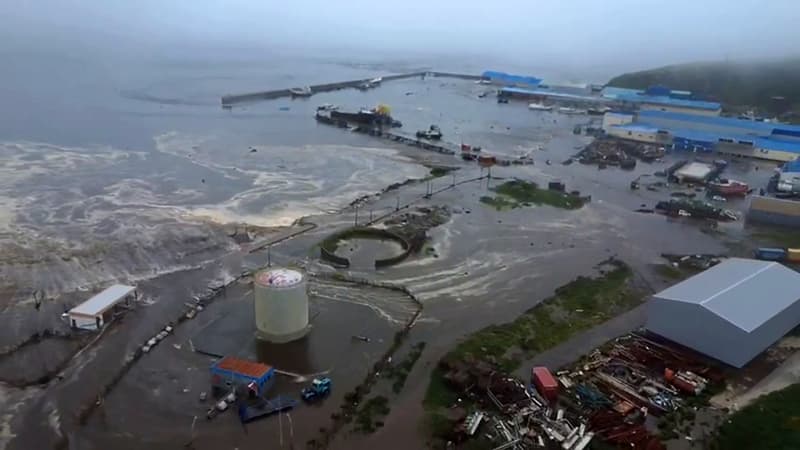During the night from July 29 to 30, a violent earthquake left the Russian Kamchatcka Peninsula. With a magnitude of 8.8, it caused tsunamis in Russia and Japan. While alerts were issued and then listed in the Pacific, the question arises if artificial intelligence can predict earthquakes and tsunamis. And above all, if you can do it reliably.
Exact predictions …
Artificial intelligence systems have already been designed to detect earthquakes and alert interested people. Researchers at the University of Texas, for example, have developed an AI algorithm that has been subject to a seven -month test in China. In August 2024, they revealed that their system had properly predicted 70% of earthquakes a week before they arrived.
Having discerned the signs of an imminent terrre tremor among the rumble of the earth, 14 earthquakes predicted. The strength of an earthquake “with almost perfect precision” could also predict. On the other hand, one was lost and gave eight false alerts.
… but not always
Google also offers its own system since 2020. Android earthquake alerts (AEA), can detect them before people on the site thanks to algorithms and seismic sensors.
At the end of October 2022, this system allowed to successfully warn the owners of the Californians of an Android smartphone that an earthquake of magnitude 4.8 then improved in 5.1 was imminent. But AEA is not 100% reliable and has already made mistakes. On July 27, Google admitted that its alert system had failed in February 2023, when Türkiye was beaten by two earthquakes.
It has several alert levels, including “Take Action”, which is the highest. Such alert is sent when tremors are likely to threaten human life. During the first earthquake, 10 million people should have received one. The AEA, however, sent only 469. Similarly, it only sent half a million alerts “have knowledge”, designed for “light idiots.”
As Google explained, its system underestimated the intensity of the two earthquakes due to “detection algorithms limitations.” After making changes and simulated the first earthquake again, the AEA sent 10 million alerts of “taking of measures” and 67 million alerts “to know.”
Predict tsunamis
According to the American giant, the problem found by his system is not specific to him. “All early alert systems for earthquakes face the same challenge: optimize algorithms for great magnitude events,” he said.
Tsunamis prediction using AI is less advanced, since it is still in the research stage. In recent years, the University of Cardiff, in Wales, has worked, for example, on a long -standing project whose objective is to “improve alert systems for natural disasters worldwide”,
As part of it, an early warning system was developed in 2023 capable of determining the risk of Tsunami of the earthquakes. Specifically, it analyzes “the acoustic waves of gravity, which propagate in water much faster than the waves of the tsunami, which makes it possible to evacuate the facilities faster before arriving on earth,” said the manager of the Usama Kadri project in a press release.
Last June, however, they presented a new tool capable of evaluating the danger level of a real -time tsunami, using AI models. “Our work shows that we can use sound waves in the ocean to evaluate tsunamis quickly and around the world, when they occur and not after the wave has already touched the earth,” said Usama Kadri.
According to him, this “will allow previous and more reliable alerts that could save lives in risky communities around the world.” But this new tool must still be the issue of tests.
Source: BFM TV


